Best Scuba Diving Tips for Beginners 101
This guide provides the best scuba diving tips for beginners to ensure safety, enjoyment, and confidence as you embark on your underwater journey. Scuba diving is an exhilarating adventure that opens up a whole new world beneath the waves. Whether you’re drawn to vibrant coral reefs, historic shipwrecks, or fascinating marine life, getting started with diving requires knowledge, preparation, and practice.
Table of Contents
ToggleGet the Right Certification
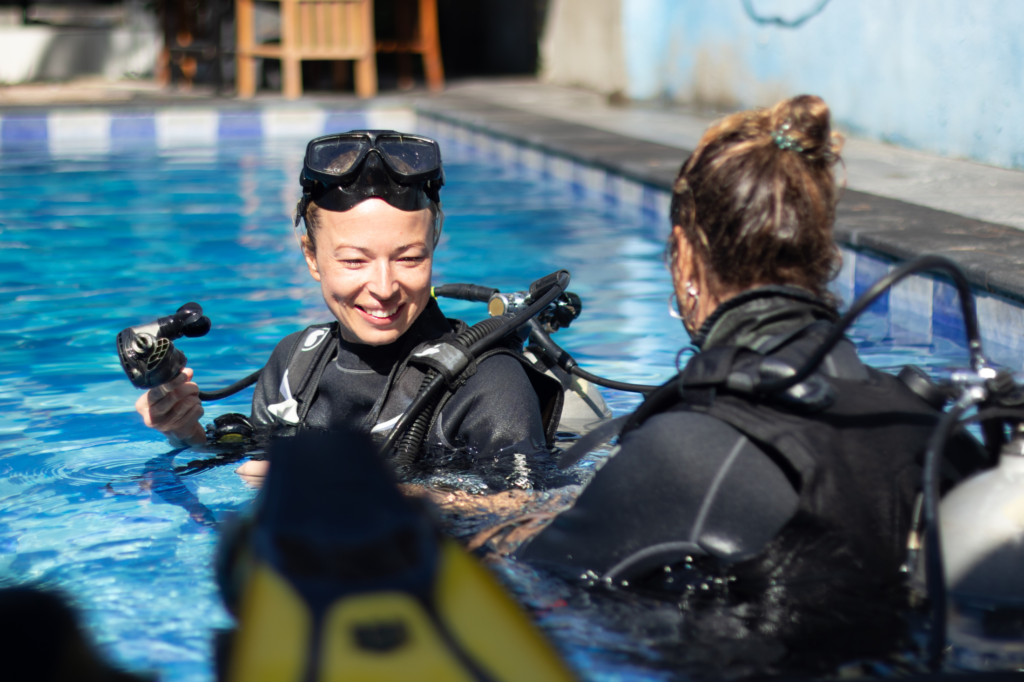
One of the most important steps in becoming a certified diver is selecting the appropriate course. If you’re wondering what diving certification is best, the answer depends on your goals. PADI (Professional Association of Diving Instructors) and NAUI (National Association of Underwater Instructors) are among the most recognized certifications worldwide. These programs provide beginner courses like Open Water Diver, which equips you with essential skills and safety knowledge.
Always Dive with a Buddy
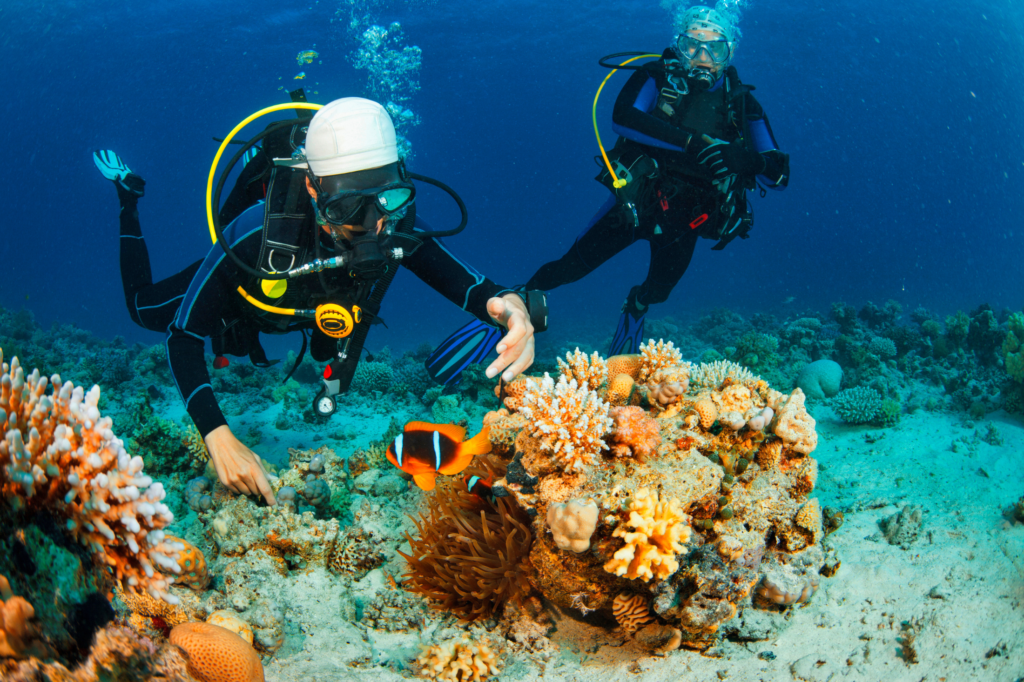
You may have heard the phrase “never dive alone.” This is one of the golden rules of scuba diving. Why diving with a buddy? Because diving with a partner enhances safety and communication. A buddy can assist in emergencies, monitor your air supply, and share the experience of discovering marine life together. Always conduct a pre-dive safety check with your buddy to ensure all gear is working properly before descending.
Learn How Your Gear Works
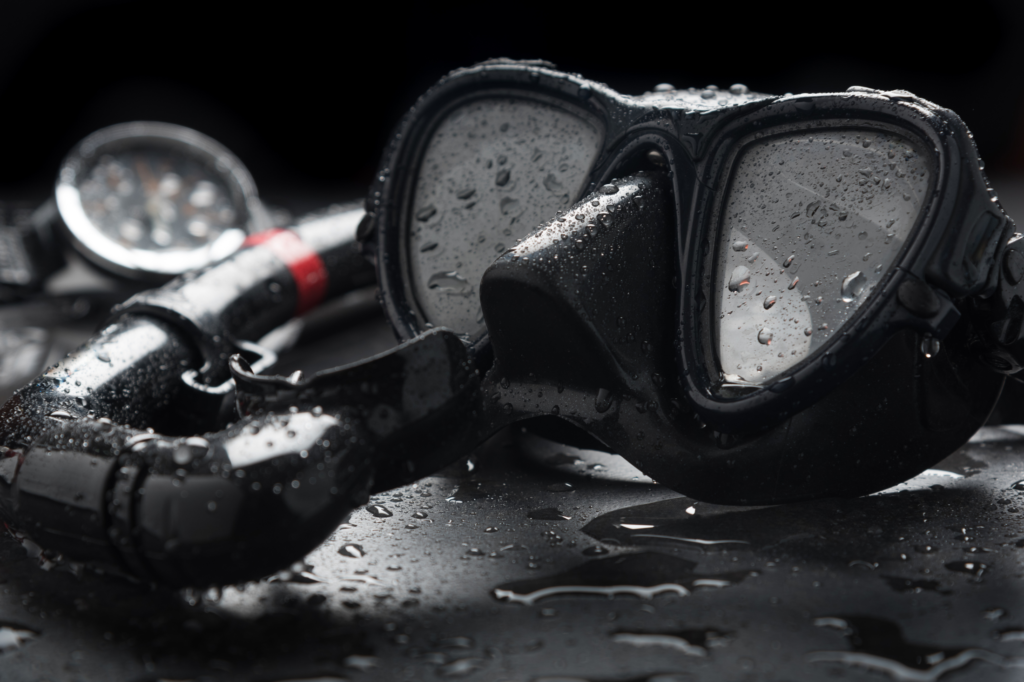
Understanding your equipment is crucial for a safe and enjoyable dive. Beginners often ask, how does a diving mask work? A diving mask creates an air pocket around your eyes, allowing you to see underwater. The mask must fit snugly and have a good seal to prevent leaks. Other essential equipment includes:
- Regulator: Converts high-pressure air from the tank into breathable air.
- Buoyancy Control Device (BCD): Helps you ascend and descend smoothly.
- Wetsuit or Drysuit: Provides thermal insulation.
Speaking of suits, have you ever wondered why diving suits are black? The dark color absorbs heat efficiently, keeping divers warm in cold waters.
Master Buoyancy Control
One of the most important skills for beginners is buoyancy control. Good buoyancy allows you to conserve energy and air while avoiding unintentional contact with marine life or delicate coral reefs. Here are some tips:
• Use slow, controlled breathing to help with buoyancy.
• Adjust your BCD incrementally.
• Keep a streamlined posture to reduce drag in the water.
Plan Your Dive and Know Your Limits
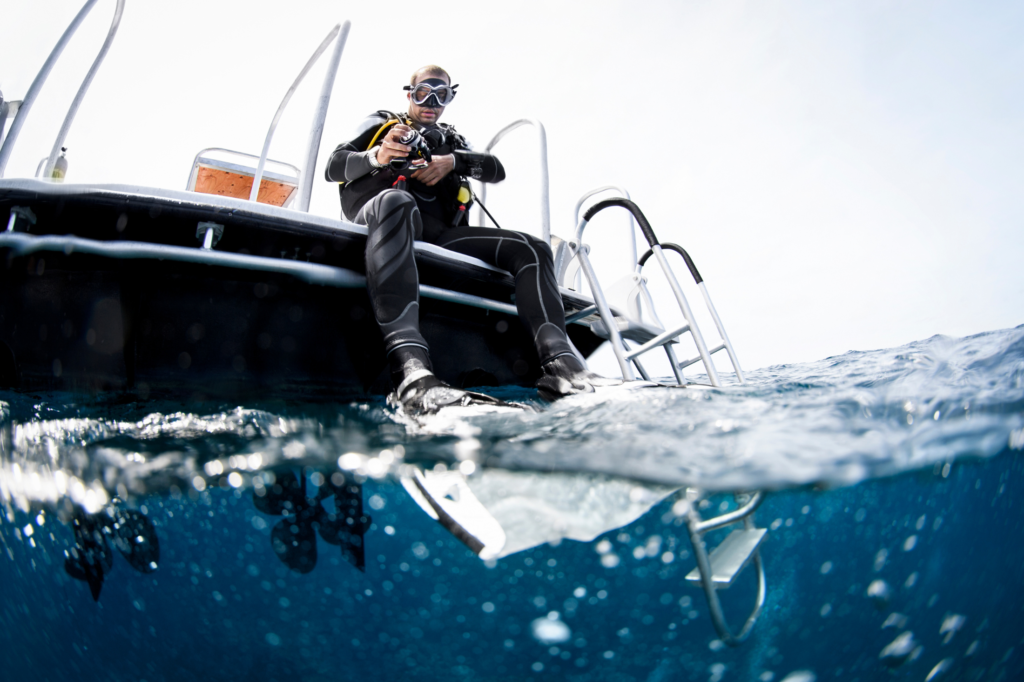
Before any dive, ensure you have a dive plan that includes depth, duration, and emergency procedures. New divers often ask, what diving depth requires decompression? Recreational divers typically stay within 40 meters (130 feet), which usually does not require decompression stops. However, dives deeper than this require careful planning, as ascending too quickly can lead to decompression sickness (the bends).
Understand the Importance of Decompression
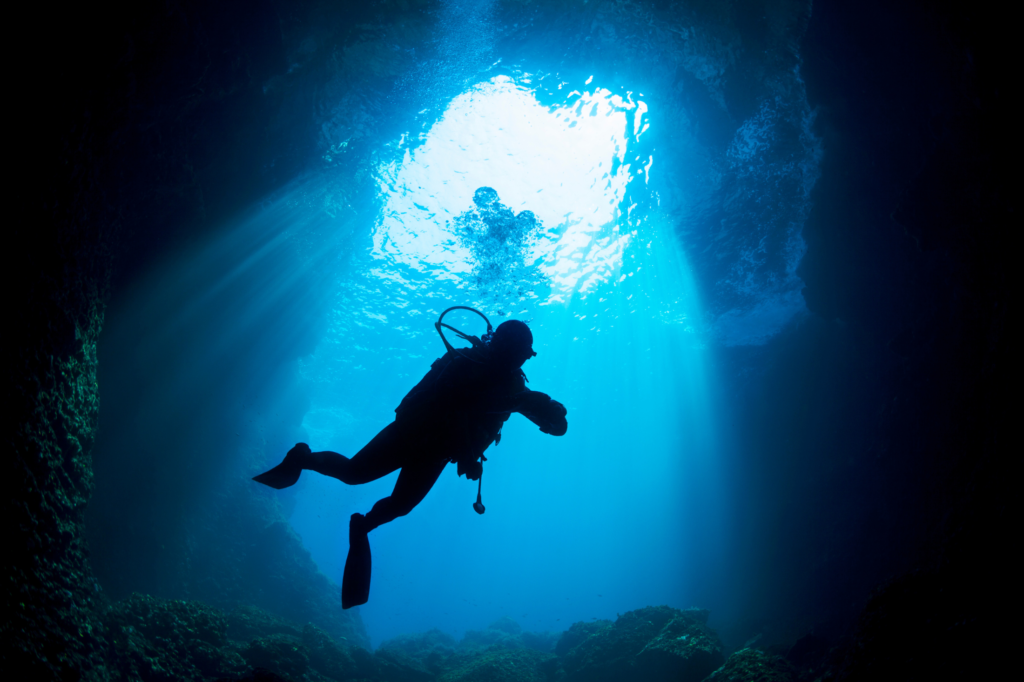
The deeper and longer you dive, the more nitrogen your body absorbs. To prevent decompression sickness, follow these guidelines:
- Ascend slowly and make safety stops.
- Use a dive computer or tables to track your nitrogen levels.
- Stay hydrated and avoid alcohol before diving.
Practice Equalizing Your Ears
Water pressure increases as you descend, which can cause discomfort in your ears. To avoid this, equalize frequently using techniques like the Valsalva maneuver (pinching your nose and gently blowing). If you feel pain, ascend slightly and try again.
Be Aware of Diving Safety and Emergency Signals
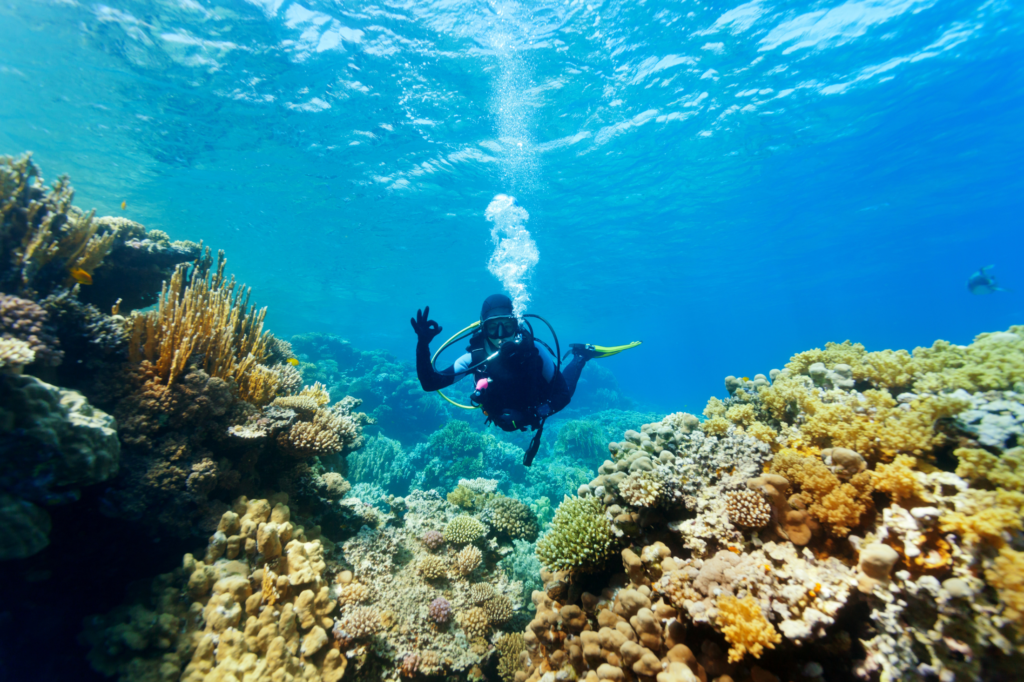
Learning basic hand signals and emergency procedures is essential for safe diving. Your instructor will teach signals for communicating issues like low air, ascent, or distress. Familiarize yourself with these signals before diving.
Respect Marine Life and the Environment

While underwater, it’s crucial to be a responsible diver. Avoid touching or disturbing marine life, and never take anything from the ocean. Coral reefs and marine ecosystems are delicate, so practice good buoyancy to avoid accidental damage.
Know Where to Go for the Best Diving Experiences
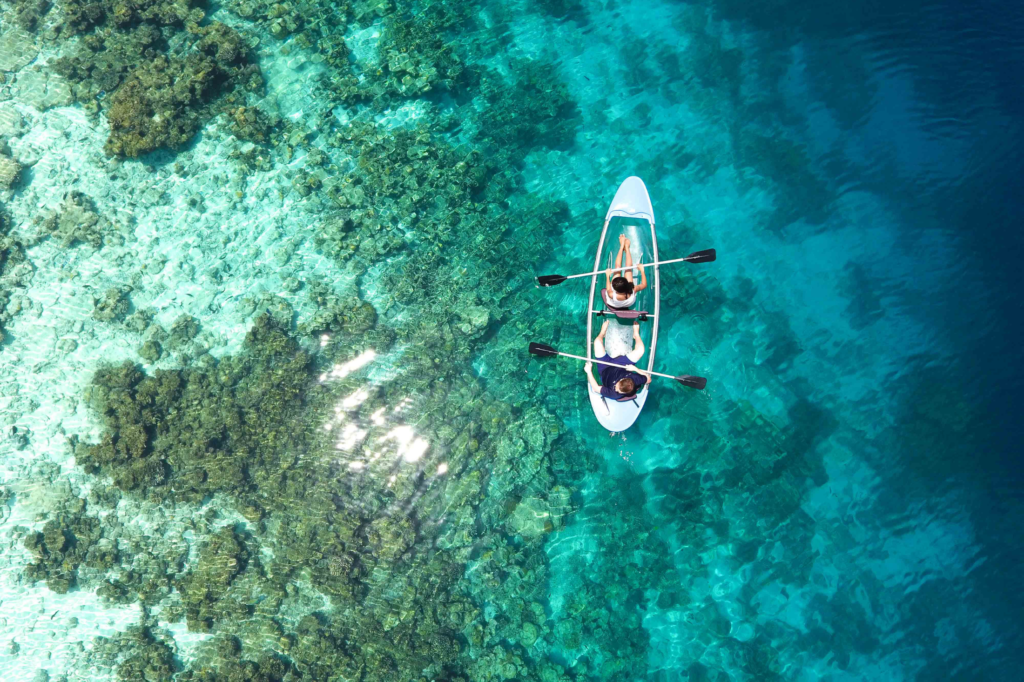
Beginners often ask, where is the best place for scuba diving? Some top destinations for novice divers include:
- The Great Barrier Reef, Australia – Incredible biodiversity and beginner-friendly dive sites.
- Bonaire, Caribbean – Known for calm waters and stunning coral reefs.
- Hawaii, USA – Offers warm waters and diverse marine life.
- Thailand – Popular dive spots like Koh Tao offer affordable training.
For more comprehensive information on this subject, you can read our article best diving spots in the world.
Understand the Difference Between Diving and Snorkeling

Many beginners confuse diving and snorkeling, but they are quite different:
- Scuba diving involves using a tank and regulator for extended underwater exploration.
- Snorkeling allows you to stay on the surface with a mask, snorkel, and fins.
Both are enjoyable, but if you’re looking for longer underwater adventures, scuba diving is the way to go.
Know About Diving-Related Professions
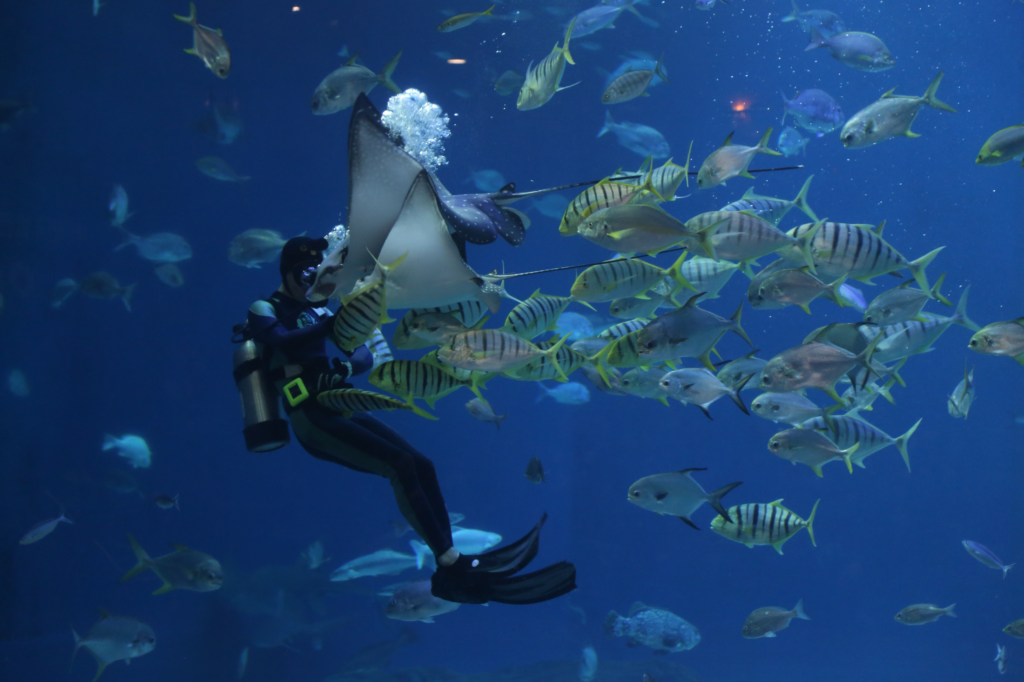
If you fall in love with diving, you might wonder, what diving jobs are there? Scuba diving offers various career opportunities, including:
- Dive Instructor or Divemaster – Teaching others how to dive.
- Underwater Photographer – Capturing marine life for research or tourism.
- Commercial Diver – Working in construction, maintenance, or salvage.
- Marine Biologist – Studying underwater ecosystems.
Conclusion
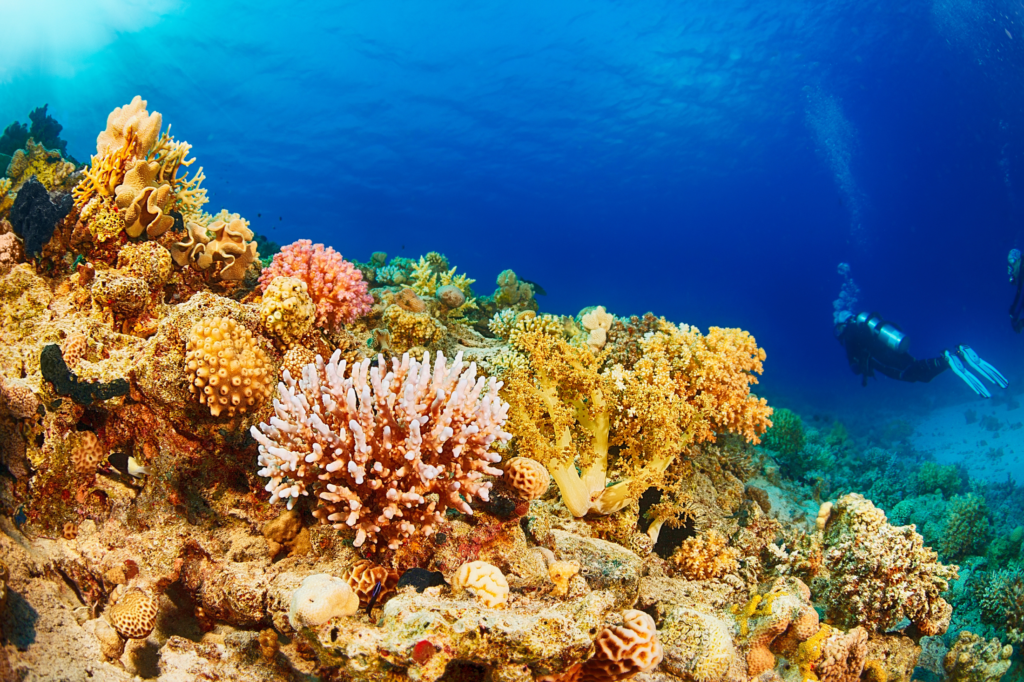
Finally, the most important tip is to stay relaxed and enjoy the experience. Scuba diving is about discovering new worlds, meeting incredible marine life, and gaining confidence in the water. Take your time, learn from experienced divers, and most importantly, have fun!
Starting your journey into scuba diving can be life-changing. By following these best scuba diving tips for beginners, you’ll be well-prepared for safe and exciting dives. Whether you’re interested in where to scuba dive, why diving suits are black, or how diving masks work, taking the time to learn and practice will help you become a confident diver.
If you are ready, let us introduce you to the beautiful places in the world where you can enjoy this pleasure.

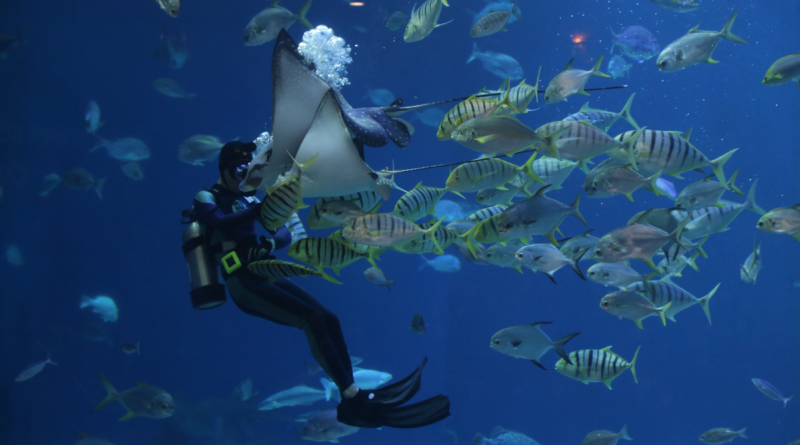



Pingback: Best Diving Spots in the World - Sports Tourism Guide